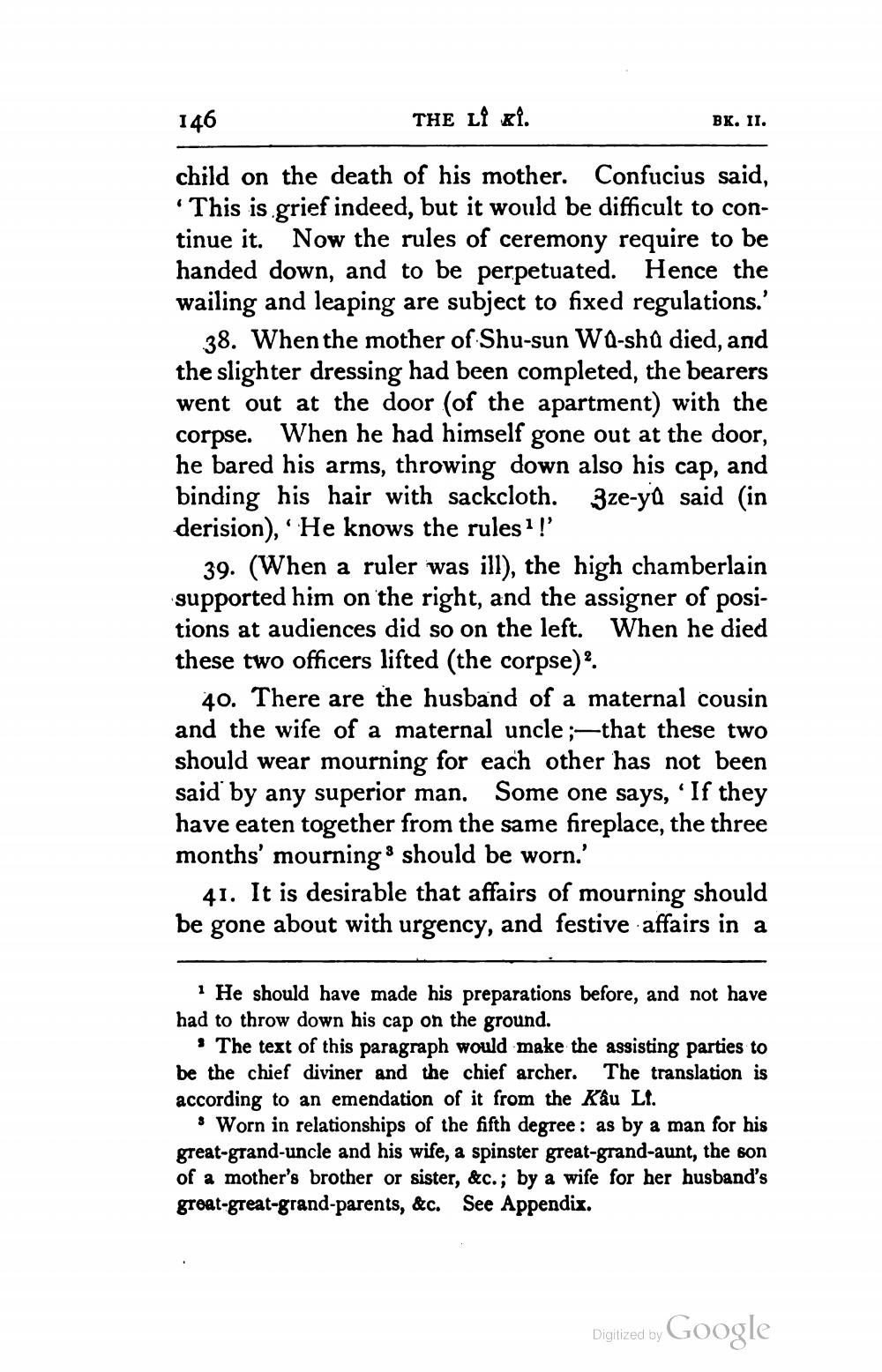________________
146
THE LI Ri.
BK. II.
child on the death of his mother. Confucius said, *This is grief indeed, but it would be difficult to continue it. Now the rules of ceremony require to be handed down, and to be perpetuated. Hence the wailing and leaping are subject to fixed regulations.'
38. When the mother of Shu-sun Wa-shù died, and the slighter dressing had been completed, the bearers went out at the door (of the apartment) with the corpse. When he had himself gone out at the door, he bared his arms, throwing down also his cap, and binding his hair with sackcloth. 3ze-yū said in derision), ' He knows the rules?!'
39. (When a ruler was ill), the high chamberlain supported him on the right, and the assigner of positions at audiences did so on the left. When he died these two officers lifted (the corpse) ?
40. There are the husband of a maternal cousin and the wife of a maternal uncle ;—that these two should wear mourning for each other has not been said by any superior man. Some one says, 'If they have eaten together from the same fireplace, the three months' mourning should be worn.'
41. It is desirable that affairs of mourning should be gone about with urgency, and festive affairs in a
1 He should have made his preparations before, and not have had to throw down his cap on the ground.
The text of this paragraph would make the assisting parties to be the chief diviner and the chief archer. The translation is according to an emendation of it from the Kâu Lt.
s Worn in relationships of the fifth degree: as by a man for his great-grand-uncle and his wife, a spinster great-grand-aunt, the son of a mother's brother or sister, &c.; by a wife for her husband's great-great-grand-parents, &c. See Appendix.
Digitized by Google




